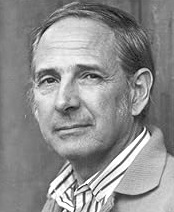John Searle (1932-2025)
 Daily Nous has reportedthat John Searle has died. Searle wasone of the true greats of contemporary philosophy, having made huge and lastingcontributions to several of its subdisciplines, but especially to philosophy ofmind and philosophy of language. His workhad an enormous influence on me in my undergrad and graduate studentyears. His books
Minds, Brains, and Science
,
Intentionality:An Essay in the Philosophy of Mind
, Speech Acts, and
The Rediscovery of the Mind
wereespecially formative. And his uncommonlylucid style was the main model for my own approach to philosophicalwriting. I had the pleasure of meetingand talking to him on several occasions, and Steven Postrel and I interviewedhim for Reason magazine overtwenty-five years ago.
Daily Nous has reportedthat John Searle has died. Searle wasone of the true greats of contemporary philosophy, having made huge and lastingcontributions to several of its subdisciplines, but especially to philosophy ofmind and philosophy of language. His workhad an enormous influence on me in my undergrad and graduate studentyears. His books
Minds, Brains, and Science
,
Intentionality:An Essay in the Philosophy of Mind
, Speech Acts, and
The Rediscovery of the Mind
wereespecially formative. And his uncommonlylucid style was the main model for my own approach to philosophicalwriting. I had the pleasure of meetingand talking to him on several occasions, and Steven Postrel and I interviewedhim for Reason magazine overtwenty-five years ago.Searle wasfamously self-confident, but he had a sense of humor about it. In the Q and A session after a talk I gave ata conference we were both at, he strongly took issue with the Aristotelianism Iwas defending. After the session I toldhim I was surprised he was not more open to Aristotelian arguments, given thearticle his colleague Alan Code had contributed to a festschrift on Searle,arguing that there were important parallels between Searle’s views andAristotle’s. With a twinkle in his eye,he replied: “Oh yeah, I remember that article. I thought he made Aristotle sound pretty good!”
I’ve had afair amount to say about Searle’s views in various places, most recently in mybook ImmortalSouls. Some readers might findof interest a couple of papers wherein I engage with his views in depth: “Why Searle Is a Property Dualist” and “FromAristotle to John Searle and Back Again: Formal Causes, Teleology, andComputation in Nature.”
Searle sufferedenormous harm to his personal reputation and career in the last years of hislife. Most who know of this have onlyheard one side of the story. There isanother side to it, which is given by his longtime secretary Jennifer Hudin inan email that has been publishedat Colin McGinn’s blog.
What I cansay with certainty is that philosophy is in debt to his work, and that I ampersonally in great debt to it. Though Iwas never formally his student, it feels as if one of my teachers hasdied. Requiescat in pace.
Edward Feser's Blog
- Edward Feser's profile
- 328 followers



